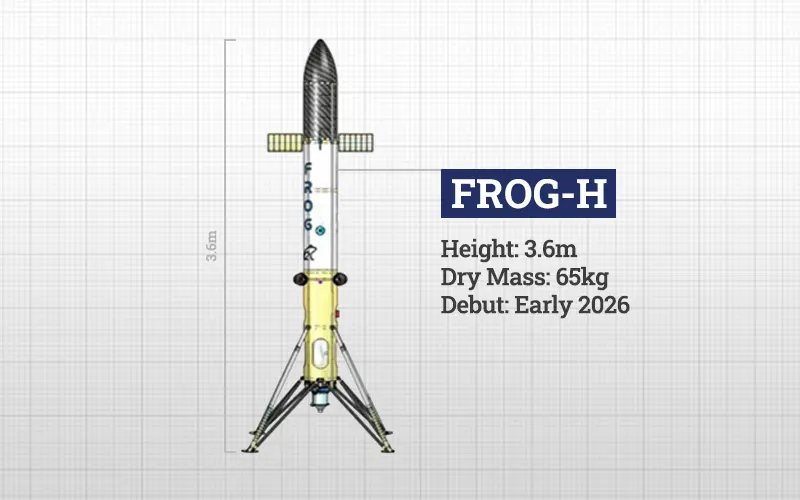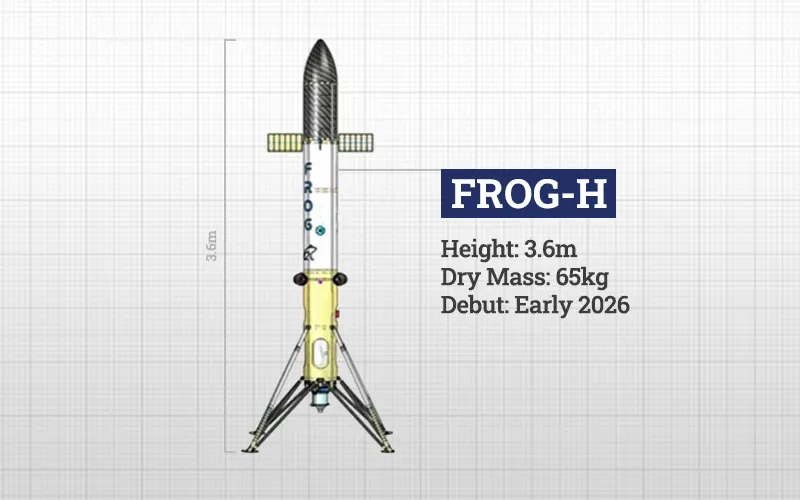 Credit: CNES / European Spaceflight
Credit: CNES / European Spaceflight
The French space agency CNES has confirmed to European Spaceflight that the debut of its upgraded FROG reusable rocket demonstrator has been pushed to 2026. The FROG-H vehicle had been expected to complete initial test flights in early 2025.
The Rocket for GNC Demonstration (FROG) initiative was launched by the CNES Launch Vehicles Directorate in 2017 to test landing algorithms for the propulsive recovery of reusable rockets. The initial 2.5-metre FROG-T demonstrator was powered by a turbojet instead of a rocket engine and first flew in May 2019. In total, the vehicle completed five flights during which it reached a maximum altitude of 30 metres.
Following the FROG-T flight campaign, the team began work on FROG-H, a larger vehicle that stands at 3.6 metres tall and is equipped with a monopropellant rocket engine provided by the Łukasiewicz Institute of Aviation in Poland. The aim of this upgraded vehicle is to test the findings of the initial flight campaign under conditions that are more representative of a reusable rocket booster “from a propulsion point of view.”
In 2024, CNES updated the FROG project page on its website, an update that included a projected inaugural flight of the FROG-H demonstrator taking place in early 2025. This, however, did not occur. When asked for an update on the project’s progress, an agency representative told European Spaceflight that the FROG team did not wish to communicate at this time. However, the representative did confirm that the first flight of the demonstrator was now not expected to take place until the first quarter of 2026.
In addition to FROG, CNES is also working on the Callisto reusable rocket programme. With Callisto, the agency has partnered with DLR and JAXA to build a 13-metre-tall demonstrator that will be used to develop and mature key technologies for future reusable rocket systems. In early September, CNES published a call for proposals that revealed that the inaugural flight of Callisto had slipped from 2026 to 2027.

